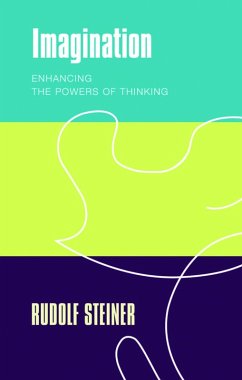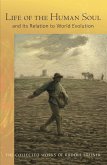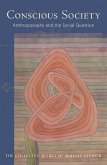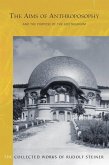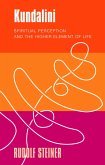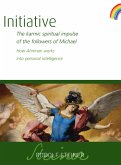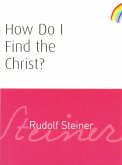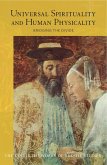Rudolf Steiner differentiated clearly between the spiritual concept of Imagination and our everyday understanding of the word. As living, pictorial thinking, Imagination is a primary aspect of the contemporary path of inner schooling - the first of three levels of initiate knowledge and cognition. Imagination leads us into a world of flowing, living pictures: a realm of soul and spirit in which everything is in continual movement.
This anthology offers a survey of the diverse aspects of Imagination and imaginative cognition. As the thematically re-ordered texts reveal, Rudolf Steiner's spiritual philosophy - anthroposophy - is itself often pictorial and imaginative in nature. Many of its fundamental concepts, such as the evolution of the world and the human being, were formulated by Steiner in vivid, living pictures. However, whilst imaginative perception leads us to the threshold of the spiritual world, we can also fall prey there to illusions, visions and hallucinations.
This volume, expertly assembled by Edward de Boer, draws on the entirety of Rudolf Steiner's collected works - from his earliest writings to passages from his many lectures. It is conceived as a stimulus to readers to practise, deepen and extend their own imaginative consciousness. Steiner's commentary on 'exemplary Imaginations', in particular, encourages further study, contemplation and schooling of our own pictorial thinking.
Chapters include 'Imagination as Supersensible Cognition'; 'The Rosicrucian Path of Schooling'; 'Exercises to Develop Imagination'; 'Understanding Imagination Through Inspiration and Intuition'; 'Illusions, Hallucinations and Visions'; 'Imaginative Perception as the Threshold to the Etheric World'; 'Goethe's Worldview' and 'Exemplary Imaginations' (including commentary on 'The Fairy-tale of the Green Snake and the Beautiful Lily', The Mystery Plays; The Great Initiates; the 'Apocalyptic Seals'; The Chymical Wedding of Christian Rosenkreutz and the 'Michael Imagination').
This anthology offers a survey of the diverse aspects of Imagination and imaginative cognition. As the thematically re-ordered texts reveal, Rudolf Steiner's spiritual philosophy - anthroposophy - is itself often pictorial and imaginative in nature. Many of its fundamental concepts, such as the evolution of the world and the human being, were formulated by Steiner in vivid, living pictures. However, whilst imaginative perception leads us to the threshold of the spiritual world, we can also fall prey there to illusions, visions and hallucinations.
This volume, expertly assembled by Edward de Boer, draws on the entirety of Rudolf Steiner's collected works - from his earliest writings to passages from his many lectures. It is conceived as a stimulus to readers to practise, deepen and extend their own imaginative consciousness. Steiner's commentary on 'exemplary Imaginations', in particular, encourages further study, contemplation and schooling of our own pictorial thinking.
Chapters include 'Imagination as Supersensible Cognition'; 'The Rosicrucian Path of Schooling'; 'Exercises to Develop Imagination'; 'Understanding Imagination Through Inspiration and Intuition'; 'Illusions, Hallucinations and Visions'; 'Imaginative Perception as the Threshold to the Etheric World'; 'Goethe's Worldview' and 'Exemplary Imaginations' (including commentary on 'The Fairy-tale of the Green Snake and the Beautiful Lily', The Mystery Plays; The Great Initiates; the 'Apocalyptic Seals'; The Chymical Wedding of Christian Rosenkreutz and the 'Michael Imagination').
Dieser Download kann aus rechtlichen Gründen nur mit Rechnungsadresse in A, B, BG, CY, CZ, D, DK, EW, E, FIN, F, GR, H, IRL, I, LT, L, LR, M, NL, PL, P, R, S, SLO, SK ausgeliefert werden.

